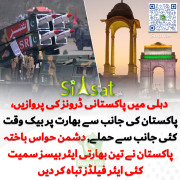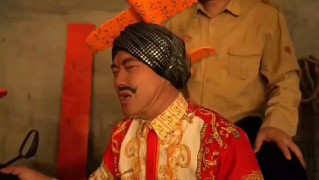RAW AGENT
Chief Minister (5k+ posts)
yeh dekh tumhare baap ne tumhari bahan ke sath kya kia jisase tum paida ho gaye ..............................[hilar][hilar][hilar][hilar][hilar][hilar][hilar][hilar][hilar][hilar]
Father rapes daughter in Karachi, confesses guilt
DANIYAL MAY 21, 2012
KARACHI: In an appalling incident, a teenage girl was allegedly raped by her father in Karachi, policesaid Saturday. The 16–year–old girl, Shahida, a resident of Kathore area of Gadap, reached the localpolice station and filed a complaint against her father. The police arrested the accused, who confessed to raping her daughter.The original article can be found at Samaa.
@ahad1 ........ki adhuri kahani [hilar][hilar][hilar][hilar]
CHAKWAL, Nov 27: A father is alleged to have led a gang of 24 men of his clan to rape his daughter and divorced wife for defying his choice of the groom for their daughter.
Police have registered a case against the father, Dilbar Khan, the clansmen of Jabbi Kotehra village in tehsil Talagang who went into hiding after committing the brutality.
The victims and police sources told Dawn on Tuesday that Parwana Bibi and her mother Durdana were picked up by Dilbar Khan on November 23.
The enraged kidnappers took both the women to a house located a few kilometres away from their village where they subjected them to severe torture.
“I have been raped by my father Dilbar Khan while my cousins raped my mother,” she said while talking to Dawn on Tuesday.
Parwana Bibi and Durdana Jan are currently being treated at District Headquarters Hospital (DHQ) where they were still awaiting medical examination thanks to the doctors apathy.
However, Tamman Police have registered a case of kidnapping, torture and rape against Dilbar Khan and 24 others.
The incident took place when Dilbar Khan tried to marry Parwana Bibi to his nephew Aslam Khan.
The victim girl said she had been living with her mother ever since Dilbar Khan divorced his wife some six years ago.
Parwana rejected the proposal and told her father that she would marry the man of her mother’s choice. This enraged Dilbar Khan who forcibly married her to Aslam Khan some four months back.
However before the marriage could be consumed, she married Mohammad Jamil with the consent of her mother she had been staying with.
Parwana Bibi said when Dilbar Khan and his relatives came to know about this new episode they managed to get a case of kidnapping registered against Mohammad Jamil and forced Parwana to give a statement against her husband.
“They threatened me that they will burn my mother alive and will kill me if I do not give a statement against my husband. Seeing mine and my mother’s life in danger I told the court in Talagang that I had been kidnapped by Mohammad Jamil,” she maintained.
She said police arrested Mohammad Jamil and was sent to jail.
However, after a few days Parwana and her mother Durdana Jan found an opportunity to submit an application to the Tamman police in which they denied that she had been kidnapped by Mohammad Jamil and said she married him willingly.
Parwana said they also told the police that both were facing life threat.
Police presented both the women in the court where Parwana gave the same statement she had given to the police. The court sent them to Shelter Home where they stayed a month.
A few days ago Mohammad Jamil was also released by the court and allowed to live with Parwana and his mother in-law.
On November 23, Dilbar Khan along with his accomplices stormed the house of her daughter and kidnapped her and his erstwhile wife Durdana Jan.
After subjecting them to severe torture, Dilbar Khan again forced Parwana to change her statement to which she agreed.
When they brought her to police station she got the courage told the tale of kidnapping and torture to the SHO.
The police raided the house of Dilbar Khan and recovered Durdana Jan. She was in a miserable condition.
“We are waiting for medical report”, Investigation Officer Nazar Hussain told Dawn.
When the attention of Medical Superintendent of DHQ Dr. Alamgir Nawabi was drawn to the matter he said that he would look into the matter.
(The names of the victims and accused have been changed to hide their identities)
real name of boy born out of this rape is @Ahad1 [hilar][hilar][hilar]
bechara @Ahad1 iska baap bahut badmaash hai
ha ha ha............................pakistani aise hi hote hai .........................[hilar][hilar][hilar][hilar][hilar][hilar][hilar][hilar][hilar][hilar][hilar][hilar]
Man rapes daughter, poisons her to death in Pak's Punjab
[FONT=open_sansbold]Posted on:[/FONT] 11:16 AM IST Jun 09, 2013
Lahore: A man allegedly raped his daughter and later poisoned her to death in Pakistan's Punjab province, police said on Sunday.
The incident occurred a few days ago in Nawan Kot village of Gujrat district, 125 km from the provincial capital of Lahore. The girl's family did not report the incident to police and secretly buried her in a local graveyard.

#crime #crime against women #gangrape #murder
The matter came to light when Sobia Amaan, a friend of the girl, wrote a letter to the Lahore High Court Chief Justice to inform him about the incident. Chief Justice Umer Ata Bandial directed the district and sessions judge of Gujrat to probe the matter and submit a report on steps taken by the police along with his comments within 15 days.
According to the application, Amaan said her friend was subjected to sexual harassment by her father Safdar Husain. The victim informed her mother, brother and grandmother about the rape but they refused to believe her.
"Finally, she left her house and shifted to Gulshan-e-Ravi in Lahore, where her relatives contacted her and assured her that this would never happen again," the letter said.
On May 30, the victim went back home but on June 2, she was poisoned to death by her father, Amaan said.
[FONT=open_sansregular]
[*=center]









































